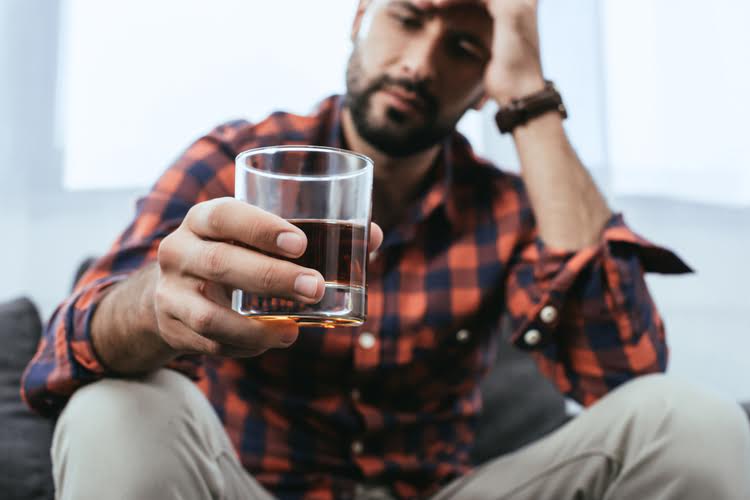Her fields of interest include Asian languages and literature, Japanese translation, cooking, natural sciences, sex positivity, and mental health. In particular, she’s committed to helping decrease stigma around mental health issues. It’s common to experience difficulty when making big changes, but good self-care practices can help you manage overwhelming feelings and take care of your mind and body. It’s possible to develop a better relationship with alcohol and make more mindful, informed choices about drinking without total sobriety. What’s most important is to look at your drinking habits and find a way to cut back that works for you.
Best Medical Alert Systems of 2024 Chosen by Testers

Binge drinking was also found to be twice as common amongst the highest earners when compared to the lowest earners. Please note that your consent will be valid across all our subdomains. You can change or withdraw your consent at https://twoshutterbirds.com/memento-mori-another-computer-sheds-this-mortal-coil/ any time by clicking the “Consent Preferences” button at the bottom of your screen. We respect your choices and are committed to providing you with a transparent and secure browsing experience.

Binge Drinking Health Effects
- Willpower is a finite resource, one that you’ve probably used up by the time happy hour hits.
- Immediate risks include impaired judgment and the potential for accidents.
- If you’re a highly impulsive person, you may be more likely to reach for another drink without stopping to think about the consequences.
- These groups can be a source of inspiration and practical advice for moderating drinking habits and seeking alternatives to alcohol consumption (source).
- If you don’t have a regular doctor, see a primary care provider or visit a free health clinic near you.
- For example, the connection between alcohol and depression is well established.
How many times have you observed people on a night out binge drinking? Many times perhaps, all these reasons have a certain amount of gravity in whether a person chooses to drink excessively. If your drinking is negatively affecting you and those around you, then it’s important that you consider reaching out for specialist treatment for addiction. Due to the many effective treatments available for people battling alcohol dependency, it’s possible for https://www.zeldalegacy.net/page/4/ you to make significant strides in your recovery. With the right level of support, you can regain control of your life.
Physical and Mental Health Impacts of Binge Drinking
Figuring out why you’re binge drinking in the first place is a crucial step in your recovery process. This involves examining what drives you toward drinking too much alcohol, considering both internal and external factors. Binge drinking is a pervasive issue, often leading to serious health and lifestyle detriments if not addressed comprehensively. Fortunately, it’s possible to cut back through a combination of self-care strategies and professional support that suits your unique circumstances.
- Is it to reduce stress, anxiety, boredom, or other negative feelings, or to feel more at ease socially?
- Local treatment facilities offer services for those seeking help, from detoxification to aftercare.
- It’s defined by the National Institute on Alcohol Abuse and Alcoholism (NIAAA) as a pattern of drinking that brings blood alcohol concentration (BAC) levels to 0.08%.
- You have a hard time cutting yourself off once you start drinking.
- The National Center for Biotechnology Information (NCBI) provides insights into the pharmacological treatments available for AUD, highlighting their effectiveness and potential side effects.
Having a concrete plan can be incredibly helpful when trying to manage binge http://bohn.ru/news/zdorove/1-0-10 drinking habits. Define clear limits for yourself around the frequency of your drinking and the quantity consumed each time. Write this down as it adds accountability, serves as a constant reminder, and aids in tracking your progress.
- Maybe you don’t think you depend on alcohol exactly, but you still wonder whether you might be drinking too much.
- If you have trouble stopping drinking once you start, these tips can help you build a healthier relationship with alcohol.
- Ultimately, each person’s journey is unique, and personalized strategies must be developed to address individual challenges and needs in recovery.
- However, part of the problem with liver disease is that there are often no initial symptoms.
- However, when alcohol makes up part of your typical routine, drinking can become something of an automatic response, especially when you feel stressed or overwhelmed.
- If you have a hard time moderating your pace, try to stick with drinks that have low alcohol content.
Ways to Stop Binge Drinking

From chronic diseases such as liver disease and heart disease to acute risks such as accidents or injuries, the effects of binge drinking can be life-threatening. Reaching for a glass of wine or a beer may feel like an instinctual way to wind down the week. However, for some, one drink can quickly become three or four. Plus, the physical and mental effects of binge drinking are just as dangerous as any other type of unhealthy drinking behavior even if you don’t consume alcohol on a daily basis.

